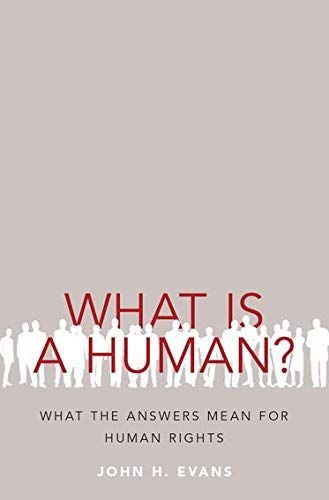
What Is a Human? What the Answers Mean for Human Rights
"The debate over what makes human beings unique has raged for hundreds of years, and many believe it is urgent to convince others to accept their particular definition of what it is to be human. Despite these dire warnings, nobody has empirically examined whether particular definitions of a human actually lead to maltreatment. In this book sociologist John H. Evans does and concludes that the definitions of a human promoted by biologists and philosophers actually are associated with less support for human rights. Members of the public who agree with these definitions say they are less willing to sacrifice to stop genocides, and are more supportive of buying organs from poor people, experimenting on prisoners against their will, torturing people to potentially save lives, and having terminally ill people commit suicide to save money. It might appear that the assumptions of critics are empirically correct. However, Evans finds that these critics are actually only partially right, and a detailed examination of the public's views reveals a much more subtle and complex situation. First, he shows that only a minority of the general public agrees with the definitions associated with less support for human rights. Then, he shows that the public has its own definitions of a human being that are unlikely to lead to human rights abuses. So while the critics are right about the definitions of a human promoted by academic biologists and philosophers, at present their concern about widespread maltreatment is overblown"--